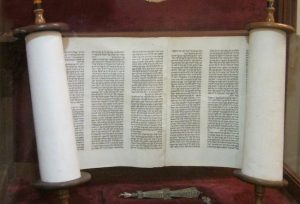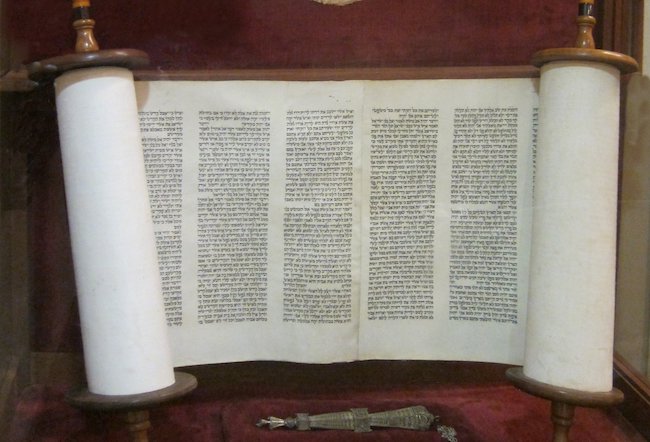
And Yosef dreamed a dream and told his brothers, and they continued to hate him. And he said to them, “Listen now to this dream, which I have dreamed. Behold, we were binding sheaves in the midst of the field, and behold, my sheaf arose and also stood upright, and behold, your sheaves encircled [it] and prostrated themselves to my sheaf.” (Breishis 37:5-7)
Something about Yosef’s dream stoked the fire of hatred within his brothers. What did it tell them?
The Malbim explains that the brother considered Yosef a false prophet? He is relating his dream as a prophetic truth. A prophecy must be 100% true. There can be no admixture of falsehood. In a previous verse Rashi comments on the words, “…and he was a lad”: ‘He behaved childishly fixing up his hair and touching up his eyes so that he would appear more handsome.’and he was a lad: He behaved childishly, fixing his hair and touching up his eyes so that he would appear handsome. [From Gen. Rabbah 84:7]
The brothers understood that what we think about during the day we dream about at night. Since he was exhibiting signs of self-absorption during the day, by being overly involved in fixing up his appearance, then by night he was dreaming self-centered dreams, placing himself in the position of leadership and authority over his older siblings. If he then goes on to believe that these dreams are necessary to be related as prophetic revelations then he is a dangerous person that is blinded by ambition and guided by delusions of grandeur.
Their premise was right. The Talmud tells us that dreams are 1/60 prophecy. If a drop of milk fell into a pot of meat with sixty times the measurement of that drop, then the milk is considered undetectable and nullified. 1/60 is on very cusp of being neglible. It is a proportion of 59 parts to 1. The reason most dreams are made up of 59 parts of foolishness out of 60 is because most of our 60,000 waking thoughts are admixtures of futile worries, false judgments, and mindless distractions. Therefore most of our dreams are a giant salad of fears and fantasies mixed with a touch of prophecy.
The Orchas Tzadikim says that if a person is focused on truth all day long then their dreams at night are potentially rich with prophetic treasures. Their assumption about Yosef may have been completely misguided.
His youthful habit of grooming himself may well have been motivated by a desire to represent Torah in the most dignified way. The Hallacha states that a Talmud scholar is not allowed to have a stain on his garment, because he represents Torah. His father gave him a fine coat, just as we put a beautiful cover on a Torah scroll. In any case their perception of his actions may have been mistaken.
It once happened that I dreamt on Shevuos morning after giving shiurim all night that a friend of mine from out of town was holding a brand new baby boy. In the dream I was talking to him and I asked him what the baby’s name was and he told me in the dream.
After Shevuos I called him up and he told me right away that his wife had a baby boy. I told him I was calling to tell him about my dream and that he told me the name in the dream. He asked me not to tell him the name, so I stopped there.
The next week I got up at 3 AM and drove four hours to the Bris. My son came along with me and he was the only person I shared the name from the dream with. They honored me with the reading of the name and when my friend whispered the name in my ear, “Yosef”, my hand started to tremble. That was the name in the dream.
Later my friend told me that he had a different name in mind all week but they checked with a Mekubal and he objected to the name they had in mind and in the last day they came up with Yosef.
I have a theory. It took me a while to realize this important factor. I may have merited a truthful dream in the morning because I was busy at night teaching the truth of Torah.


